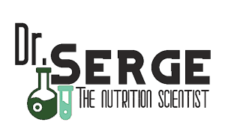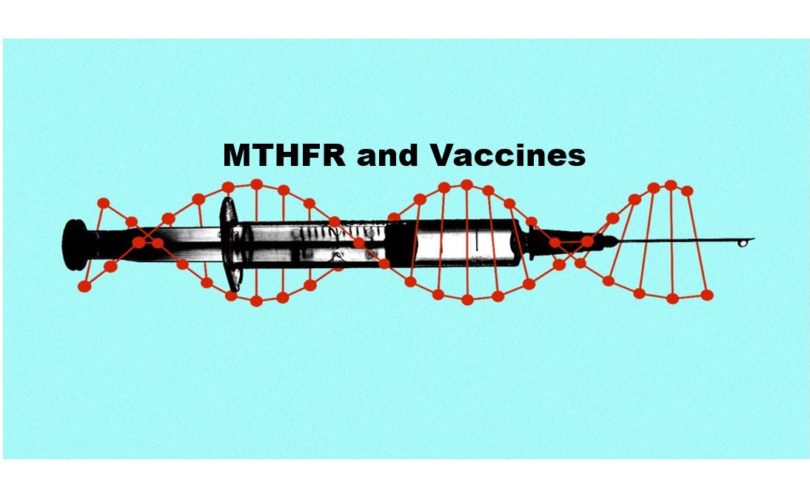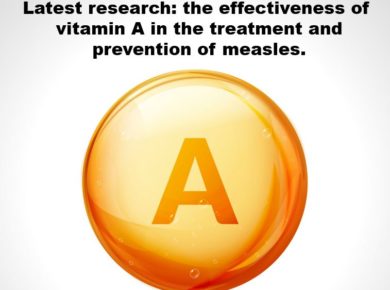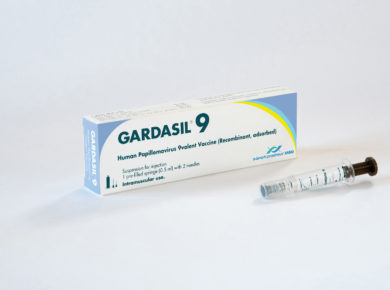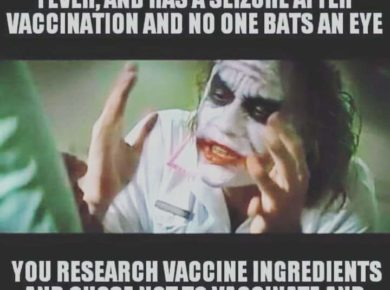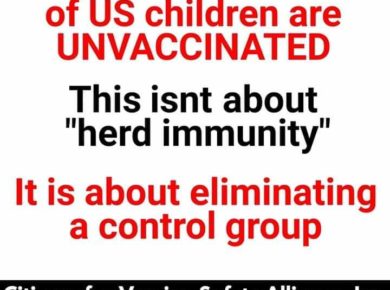MTHFR has become a hot topic, one that some doctors are focusing on too much.
Some people feel they have found the answers because they have discovered they have a genetic mutation which causes detoxing difficulties.
I have even read that people with this genetic mutation have to stay away from mercury or other toxins because they cannot detox it. The fact is, anyone can detox mercury given the correct information. And nobody can’t stay away from toxins. After all, we are exposed to more than 100 000 toxins on a daily basis!
That is just another myth that we will cover in a little while.
Some are supplementing with methyl-B12, vitamin B6, folate or other supplements because of the mutations. I don’t doubt that some people will be helped with these supplements… and that is why people are buying into this theory. They feel better with the supplements, so they must be onto something.
I have yet to see someone who is 100% well because of the MTHFR diagnosis and treatment. It just does not happen.
The MTHFR Enzyme Mutation has been blamed for schizophrenia, strokes, chronic illness, pregnancy loss, autism, and about 600 other conditions.
My question is, if MTHFR is the underlying reason some people are sick, why isn’t everyone with the same genetic mutations also sick?
In other words, some people with those mutations are not sick, they are fine. Why is that? The answer is that the mutations are not the cause of human illnesses.
That is the same situation with autism.
Some studies were done on the relationships of MHTFR and autism, but the evidence is very weak so far as to see a causal association.
This study, for example, is very interesting:
“Aberrations in folate metabolic pathway and altered susceptibility to autism” published in Psychiatric Genetics: August 2009 – Volume 19 – Issue 4 – p 171-176
The authors said that out of 138 autistic and 138 non-autistic children, 9 non-autistic children have the 677T-allele MTHFR mutations and 23 autistic children have this allele.
Their conclusions state that there is an increased risk for autism if a child has the 677T allele.
But what about those 9 children who don’t have autism and do have the allele?
What about the 115 autistic kids who do not have these mutations but have autism?
In reality, this study shows that the MTHFR mutations are not associated with autism. If that was the case, the great majority if not all of the autistic kids would have had the mutations.
Actually, I have seen this phenomenon regularly.
I have seen autistic kids with the MTHFR mutations and I have seen without. I have never been able to make a connection if a kid with those mutations has a higher risk of having autism or ASD.
Here’s another paper:
“MTHFR C677T is not a risk factor for autism spectrum disorders in South Brazil”
Published in Psychiatric Genetics: August 2010 – Volume 20 – Issue 4 – p 187-189
This study says MTHFR C677T is not a risk factor for autism spectrum disorders. Also done with a very small group of children: 151 autistic children and 100 healthy control children focusing on the 677T allele.
They stated:
“Many studies have suggested that autism may be associated with metabolic abnormalities in the folate/homocysteine pathway, which is involved in DNA methylation, thus altering gene expression. One of the most important polymorphisms in this pathway is C677T of the methylenetetrahydrofolate reductase gene, because the T allele is associated with a decrease in enzymatic activity. We evaluated the association between C677T polymorphism and autism spectrum disorders through a case–control study. In addition, we analyzed the influence of this polymorphism on certain autistic behaviors like complex body movements, self-injury and averted gaze according to the Autism Diagnostic Interview-Revised. The analyses involved 151 children with idiopathic autism spectrum disorder and 100 healthy control children. The frequency of the T allele was 0.38 for the case group and 0.35 for the control group (P=0.77). The genotypic distribution did not show significant differences between cases and controls (P=0.72), nor association between the T allele and selected behaviors.”
The conclusion is there is no association between the mutation C677T and autistic behaviors. The 677T allele was just as common in the non-autistic group as the autistic group.
Again, supporting my point that MTHFR mutations are not strongly associated with a higher risk of developing autism or neurological issues.
This meta-analysis is very interesting:
“Association between MTHFR gene polymorphisms and the risk of autism spectrum disorders: a meta-analysis” published in Autism Research.
“Methylenetetrahydrofolate reductase (MTHFR) is essential for DNA biosynthesis and the epigenetic process of DNA methylation, and its gene polymorphisms have been implicated as risk factors for birth defects, neurological disorders, and cancers. However, reports on the association of MTHFR polymorphisms with autism spectrum disorders (ASD) are inconclusive. Therefore, we investigated the relationship of the MTHFR polymorphisms (C677T and A1298C) and the risk of ASD by meta-analysis. Up to December 2012, eight case-control studies involving 1672 patients with ASD and 6760 controls were included for meta-analysis. The results showed that the C677T polymorphism was associated with significantly increased ASD risk in all the comparison models [T vs. C allele (frequency of allele): odds ratio (OR) = 1.42, 95% confidence interval (CI): 1.09-1.85; CT vs. CC (heterozygote): OR = 1.48, 95% CI: 1.09-2.00; TT vs. CC (homozygote): OR = 1.86, 95% CI: 1.08-3.20; CT+TT vs. CC (dominant model): OR = 1.56, 95% CI: 1.12-2.18; and TT vs. CC+CT (recessive model): OR = 1.51, 95% CI: 1.02-2.22], whereas the A1298C polymorphism was found to be significantly associated with reduced ASD risk but only in a recessive model (CC vs. AA+AC: OR = 0.73, 95% CI: 0.56-0.97). In addition, we stratified the patient population based on whether they were from a country with food fortification of folic acid or not. The meta-analysis showed that the C677T polymorphism was found to be associated with ASD only in children from countries without food fortification. Our study indicated that the MTHFR C677T polymorphism contributes to increased ASD risk, and periconceptional folic acid may reduce ASD risk in those with MTHFR 677C>T polymorphism.”
Let me explain to you what this means.
They found that the C677T mutation increases the risk of developing autism. On the other side, the other MTHFR mutation A1298C lowers the risk.
Yep, this is confusing and does not make sense.
The C677T mutations increase the risk ONLY if you are deficient in folic acid. In other words, folic acid minimizes the risk of having autism (if you have or not the MTHFR mutations).
Since 40% of the U.S population carries at least one copy of C677T polymorphism, and comparatively, very few people develop adverse effects, testing for MTHFR-vaccine effect is not appropriate, till further validation studies confirm the need for such screening.
In addition, there are more than 40 mutations in this gene and a dozen others in the methylation pathway.
As you can see, it is absurd to blame those mutations on all those hundreds of health issues.
Something else is at play here.
Instead of jumping on the MTHFR bandwagon, I suggest you look at what causes illnesses besides genes, like heavy metals, mycotoxins, chemicals, and other environmental causes.
Mercury is known to be a potent neurotoxin, however, a study conducted in 2014 showed a potential genetic basis. The study showed an initial association between A1298C variant of MTHFR and vaccine injury.
https://www.ncbi.nlm.nih.gov/pmc/articles/PMC4413404/
None of these studies tested for toxicity or more specifically, mercury poisoning. How many of those autistic children had mothers with amalgams. How many were vaccinated? How many love to eat tuna fish? Or lived where the water has been contaminated by mercury or arsenic? How many live in homes with toxic mold? How many have food allergies because of their toxicity?
Mercury displaces zinc and zinc plays a crucial role in more than 300 enzymes in the human body. Without zinc, our body cannot make glutathione.
Zinc is especially important during pregnancy, for the growing fetus whose cells are rapidly dividing. Which may explain why so many people who are being diagnosed with MTHFR are women who have gone through multiple miscarriages.
I believe people and doctors are confusing mercury and aluminum poisoning with MTHFR.
This is the concern that people with those mutations have: they claim they can’t detox because of those mutations.
What I say is that it is not true as long as the methylation pathway is open and working properly.
In order to do so, we need to look at these nutrients:
B12
Folate or folic acid
methionine, cysteine, taurine (proteins)
DHA
Zinc, Magnesium, Potassium
Niacin (vitamin B3)
Pyridoxine (vitamin B6)
Vitamin B1
Vitamin D
Betaine
Choline
Sulfur
Zinc
Riboflavin (vitamin B2)
These are the key to methylation, not the MTHFR mutations. In other words, making sure that you are not deficient in these nutrients is the key to optimal methylation pathway and this despite your mutation status!
The key component of this cycle is vitamin B2. Research has shown that if you take even B2, your methylation pathway.
In other words, vitamin B2 fixes the methylation pathway and this independent of the mutation status!
About 90% of the population is deficient in B2. The best sources are liver, kidney, heart, almonds, red meat, eggs, and cheese.
So the key component is B2, but we also need to make sure that the other nutrients are sufficient to get this pathway working well.
You see, there is no need to use methyl folate supplements. First, they are very expansive. Second, they are dangerous to take.
I’ve talked to several biochemists and PhDs in the field, and all of them told me that they would never supplement their diet with methyl folate.
Taking methyl folate bypasses the seven checkpoints that are there to prevent hypermethylation. You’ve got two issues going on:
1. you’ve added in a gargantuan amount of folate, potentially feeding any cancers you might have,
2. and you’ve also added a large amount of methyl groups that have bypassed the safety mechanisms that your body was designed to prevent overmethylation.
So the concern here is that those methyl folate supplements can lead to cancer growth!
In summary, the association between autism and MTHFR mutations is very weak. As I said previously, I have met autistic kids with and without those mutations. And that is what science actually demonstrates at this point.
The key to preventing injury from vaccines is to make sure that your pathways of elimination are open and working optimally. And you do this with nutrition.
God bless y’all 🙂
Dr. Serge
